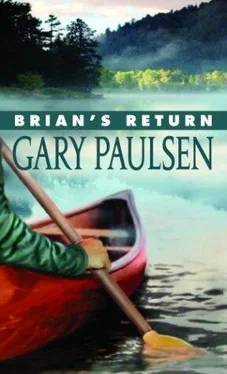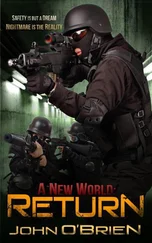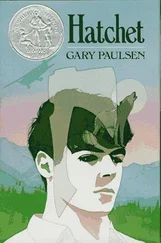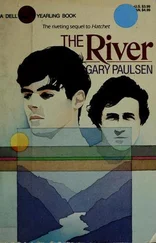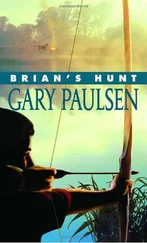Gary Paulsen - Brian's Return
Здесь есть возможность читать онлайн «Gary Paulsen - Brian's Return» весь текст электронной книги совершенно бесплатно (целиком полную версию без сокращений). В некоторых случаях можно слушать аудио, скачать через торрент в формате fb2 и присутствует краткое содержание. Год выпуска: 2001, ISBN: 2001, Жанр: Детские приключения, на английском языке. Описание произведения, (предисловие) а так же отзывы посетителей доступны на портале библиотеки ЛибКат.
- Название:Brian's Return
- Автор:
- Жанр:
- Год:2001
- ISBN:9780440413790
- Рейтинг книги:4 / 5. Голосов: 1
-
Избранное:Добавить в избранное
- Отзывы:
-
Ваша оценка:
- 80
- 1
- 2
- 3
- 4
- 5
Brian's Return: краткое содержание, описание и аннотация
Предлагаем к чтению аннотацию, описание, краткое содержание или предисловие (зависит от того, что написал сам автор книги «Brian's Return»). Если вы не нашли необходимую информацию о книге — напишите в комментариях, мы постараемся отыскать её.
Brian's Return — читать онлайн бесплатно полную книгу (весь текст) целиком
Ниже представлен текст книги, разбитый по страницам. Система сохранения места последней прочитанной страницы, позволяет с удобством читать онлайн бесплатно книгу «Brian's Return», без необходимости каждый раз заново искать на чём Вы остановились. Поставьте закладку, и сможете в любой момент перейти на страницу, на которой закончили чтение.
Интервал:
Закладка:
And an old 3-pound coffee can he found in the water by the plane when they were getting ready to take off from Ranier.
Chapter TEN
Dear Caleb: I had surprise company today. She didn’t stay long, which I’m glad about, but she definitely kept me from being bored.
And now he was, at last, alone.
He held the canoe in the lily pads and let the smoke from the small fire in the can blow over him and take the mosquitos away. There were fish everywhere. Hiding beneath the pads he could see dozens of bluegills and other panfish — sunfish, he thought, from the yellow flash of their bellies when they turned suddenly — and now and then a northern pike hunting the lilies would hit them and scatter them. He would take some later for food but it was only midafternoon and the plane had just gone — he thought he could still hear the engine — and he had time to move to the end of this small lake before dark and time to camp.
He smiled remembering the pilot when they’d landed. He had dropped the other two men off first — a lighter plane used less fuel — so the two of them had been alone for the flight. It had taken forty minutes or so to fly a hundred miles and the noise of the engine was loud so they didn’t speak much.
At one point the pilot leaned over and yelled, ‘‘You sure you’ll be all right alone up here?’’
As right as I’ve ever been, Brian thought, and was going to yell it but simply nodded and that was all their conversation until they landed and taxied to a stop at the end of the lake.
‘‘You’re here.’’ The pilot took a map from a folder in the back and handed it to Brian. ‘‘This little lake is called Payson Lake. You need to work this stream north up to Liberty Lake and then this series of chain lakes’’—he unfolded the map—‘‘up to Williams Lake. The Smallhorns are in camp here. They were at the northeast end but it’s a fish camp and they move around the lake. You can see it’s a big lake — I think eight or nine miles long and a couple wide — so you might have to look for them.’’
He gave Brian the map and helped him unload his canoe and put his gear in it. Before doing anything else, still standing on the float of the plane, Brian folded the map so his locale was faceup and put it in one of the plastic bags to keep it waterproof. Then he waded ashore.
‘‘See you in the fall,’’ the pilot called.
He waited until Brian was well away from the plane, then fired up the engine and took off without looking back.
Brian had moved at once to the shore of the small lake, pulled the canoe up on a grassy flat area and repacked his equipment. He tied everything that was loose in the canoe to the cross-strut and covered it all with the tarp except for his bow and the quiver of arrows. If he fell or the canoe rolled he would not lose all his gear. He strung the bow, made certain the string was properly nocked at both ends, and put it within easy reach on the tarp. It wasn’t tied down but the bow and arrows floated and wouldn’t be lost if the canoe rolled over suddenly.
It was hot and Brian stripped to a pair of shorts, taking his T-shirt off and rolling it under the tarp. The life jacket was nearby but since he would be working near the shore in three feet of water and then up a small creek he didn’t feel like wearing it. It was not the safest thing to do — and he would wear it if he started into deep water — but the sun felt so nice on his bare skin that he wanted to be free for a time. For the same reason he took off his cap and rolled it up in a side pocket on one of the packs. The flies and mosquitos were bad — as bad as he’d ever seen them — but the little whiff of smoke now and then from the can in the bottom of the canoe kept them at bay.
He did not hurry. He thought he might never hurry again and he quickly dropped into what he sometimes thought of as woods time. It wasn’t about time so much as about knowing what was happening and where it was happening. He often remembered the wolf he had seen moving through the woods, listening to everything, seeing everything, taking its time to not miss whatever there was to see.
Brian did that now. A leaf that moved, a small bit of wind, the cry of a small bird — he breathed slowly, quietly, and paddled the canoe gently along the shore. He saw and heard it all, was as absolutely tuned to the woods as he’d ever been, and so was completely surprised when the deer jumped into the canoe.
Chapter ELEVEN
Dear Caleb: Today I found out about plans and how they don’t always work.
There was a sudden crash to his side — so fast he hadn’t heard any preliminary movement — and a whitetail doe flew out of the brush to his right. She was a full eight feet in the air when she left the brush and billowing from her eyes were clouds of something that resembled smoke. Later, when he had time to think, he decided that flies and mosquitos were attacking her eyes, and she was momentarily blinded.
She was trying to make the water, where she could put her head under and clear away the bugs.
She landed almost exactly in the center of the canoe, nearly in Brian’s lap. And she wanted out.
Brian had read about a man who had accidentally hit a buck with his station wagon. The deer was knocked sideways and lay still in the ditch. The man stopped. Thinking the deer was dead, and not wanting to waste the meat, he put the deer in the back of the station wagon. He’d gone about four miles when the deer, which was only stunned, came back to life. The man said it was like a bomb had gone off in the car. To save himself he opened the door and bailed out with the car still moving. The deer kicked out every window, including the windshield, before it could get out and get away.
Something close to that happened now to Brian. The doe landed half on her feet and half on her stomach across the canoe. Her head, which was over the side, went down in the water and she thrashed around to raise it — probably thinking she was on a log of some kind — to find herself staring directly into Brian’s eyes.
It was impossible to say who was more surprised.
‘‘Hey—’’ Brian just had time to start when with a lunge and a kick the doe left the canoe. The problem was that her back feet caught the gunwale of the canoe and spun it like a cork.
In half a second Brian went from being upright with not a care in the world, thinking how wonderful and grand everything was, to being upside down, lungs full of water, tangled up in canoe, gear, lily pads and mud.
‘‘Arrrgghh!’’ He came up screaming and spitting mud and water. ‘‘What. .’’
He still hadn’t figured out quite what had happened but it rapidly became clear as he saw the deer bounding up out of the water and away into the brush on the shore while he stood, waist deep, surrounded by arrows, bow, upside-down canoe and packs — still dry inside garbage bags.
Nothing was seriously damaged.
Nearby onshore was a small clearing ten or twelve yards across. Brian grabbed the side of the canoe and dragged it up to the shore. He untied the packs and put them on the grass, along with his bow and arrows and the extra paddle. The equipment in the packs had been enclosed in plastic but he had neglected to wrap his sleeping bag so it was wet, though not soaked through. It had been in its stow bag and water seeped in only at the end — still, it needed to be dried.
‘‘Well, I guess,’’ he said, looking around at the clearing, ‘‘that’s one way to find a camping spot.’’
He flipped the canoe and emptied it, pulled it up on the grass and inverted it again. He spread his sleeping bag in the sun to dry and put his tent up.
There were fish in the lily pads and Brian put the line out with a bare hook, standing in the water up to his waist and fishing out around his legs. The hook was golden and flashed tiny bits of light. The fish bit without bait and he took half a dozen hand-size panfish. They were a mix of bluegills and a smaller brownish fish that seemed to be a cousin of a crap-pie — maybe some kind of rock bass — but they would taste fine. He cleaned and scaled them and put them in the large pan with fresh water.
Читать дальшеИнтервал:
Закладка:
Похожие книги на «Brian's Return»
Представляем Вашему вниманию похожие книги на «Brian's Return» списком для выбора. Мы отобрали схожую по названию и смыслу литературу в надежде предоставить читателям больше вариантов отыскать новые, интересные, ещё непрочитанные произведения.
Обсуждение, отзывы о книге «Brian's Return» и просто собственные мнения читателей. Оставьте ваши комментарии, напишите, что Вы думаете о произведении, его смысле или главных героях. Укажите что конкретно понравилось, а что нет, и почему Вы так считаете.
